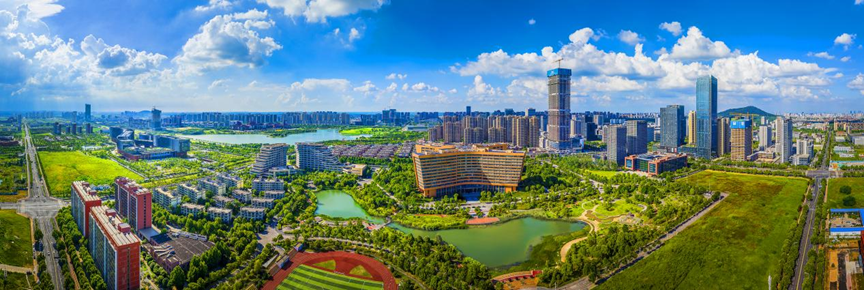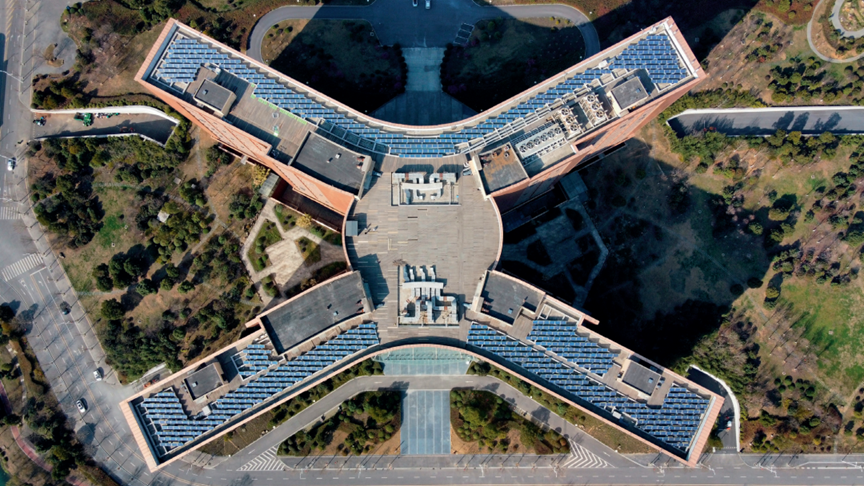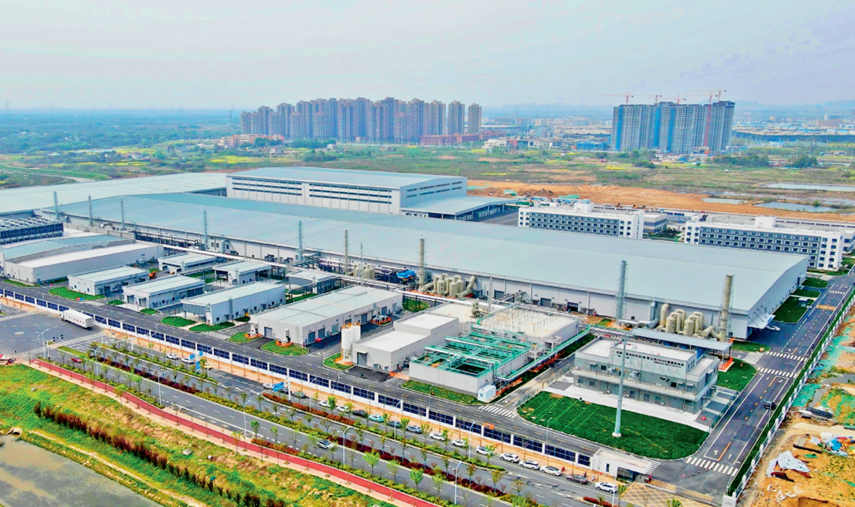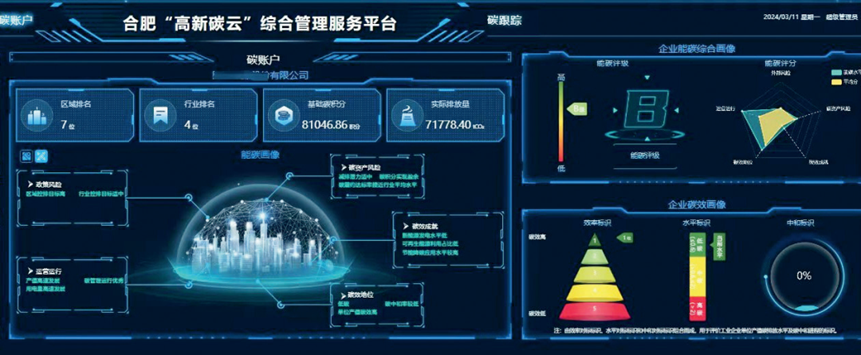Hefei high-tech zone spearheads low-carbon development
Updated: 2024-07-18
|China.org.cn
In recent years, the Hefei National High-tech Industry Development Zone has underscored Anhui province's green transformation initiative for economic and social development, pioneering pathways for low-carbon development within the zone. The zone is home to over 80,000 enterprises and hosts more than 400 provincial-level R&D platforms and institutions. In 2023, the zone contributed to nearly 12% of Hefei's GDP while occupying just 1% of the city's land area.

A panoramic view of green spaces in the Hefei National High-tech Industry Development Zone. [Photo/WeChat account: hefeigaoxinfabu]
Since 2000, Hefei has leveraged the zone to establish the demonstration area of the national science and technology innovation pilot project, focusing on strategic emerging industries, accelerating the commercialization of research achievements, and fostering the clustering of innovative industries. Over the past decade, technological innovations such as the world's first superconducting quantum computer prototype, domestically-produced 77GHz millimeter-wave radar chip, and the quantum science experimental satellite Mozi have emerged from this hub.

Photovoltaic power generation facilities are installed on the roof of the building of the Institute of Advanced Technology at the University of Science and Technology of China in the Hefei National High-tech Industry Development Zone. [Photo/WeChat account: hefeigaoxinfabu]
In the 1970s, the relocation of the University of Science and Technology of China to Hefei, along with the establishment of the Hefei Institute of Technology Innovation of the Chinese Academy of Sciences and other research institutions, laid the foundation for what is now known as Science Island. Many of these institutions situated within the zone have driven its continued growth.
Since 2017, the zone has enhanced the commercialization capabilities of over 30 scientific research platforms, resulting in a surge of innovative outputs. For example, in February 2023, the establishment of the headquarters of Qudoor, a domestic quantum technology enterprise, has further strengthened the zone's quantum industry cluster. Currently, the zone hosts 47 companies spanning the entire quantum industrial chain.
Furthermore, the zone has developed six emerging industrial clusters focusing on new energy vehicles, photovoltaic energy storage, novel displays, smart home appliances, high-end equipment, and AI.

One of the beacon projects in the Hefei National High-tech Industry Development Zone. [Photo/WeChat account: hefeigaoxinfabu]
To achieve both growth and transformation, the zone is steadfast in advancing the green upgrade of industries, encouraging enterprises to adopt advanced environmental protection and low-carbon technologies, as well as upgrading traditional methods. Over recent years, the proportion of traditional industries has decreased from 49.9% to 16.7%, while strategic emerging industries have risen from 28.3% to 57%. Meanwhile, the zone has enhanced the layout of green clusters, focusing on the development of photovoltaic, new materials, new energy vehicles, energy conservation, and environmental protection industries. Currently, the zone is home to over 500 enterprises specializing in new energy, energy conservation, and environmental protection.

The Hefei high-tech carbon cloud platform. [Photo/WeChat account: hefeigaoxinfabu]
In March this year, the Hefei high-tech carbon cloud platform, a comprehensive carbon service platform jointly developed by the zone's management committee and Hefei Power Supply Company, was launched. The platform serves six purposes including carbon assessment, carbon account, carbon governance, carbon verification, carbon finance, and carbon trading, coordinating the total energy consumption and carbon emissions of both the park and enterprises. Additionally, it provides precise monitoring of carbon emissions and carbon credit ratings for pilot enterprises within the zone.
The low-carbon transformation of the Science Island exemplifies the zone's commitment to green and sustainable development, paving the way for high-quality development toward peak carbon and carbon neutrality across sectors including the industry, construction, transportation, and community life.
